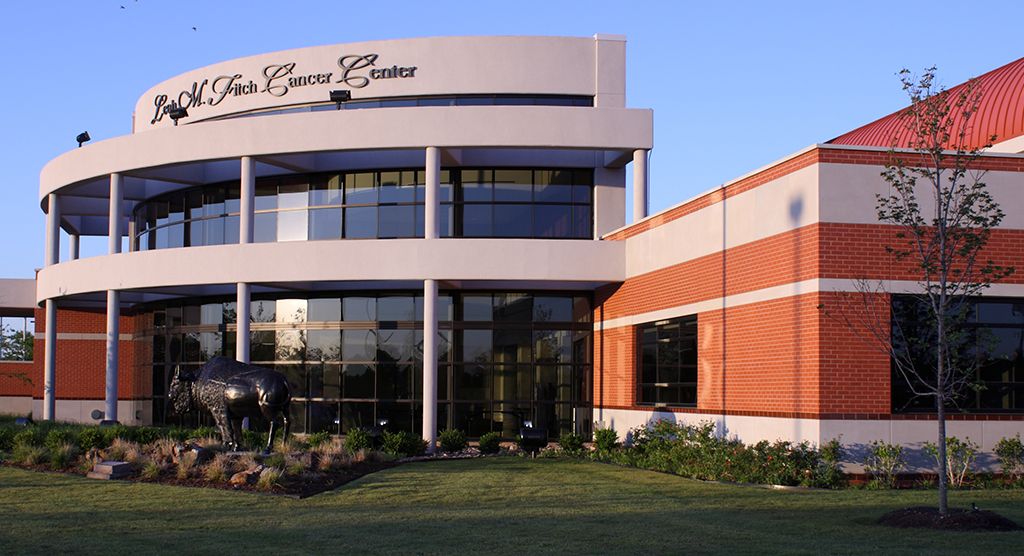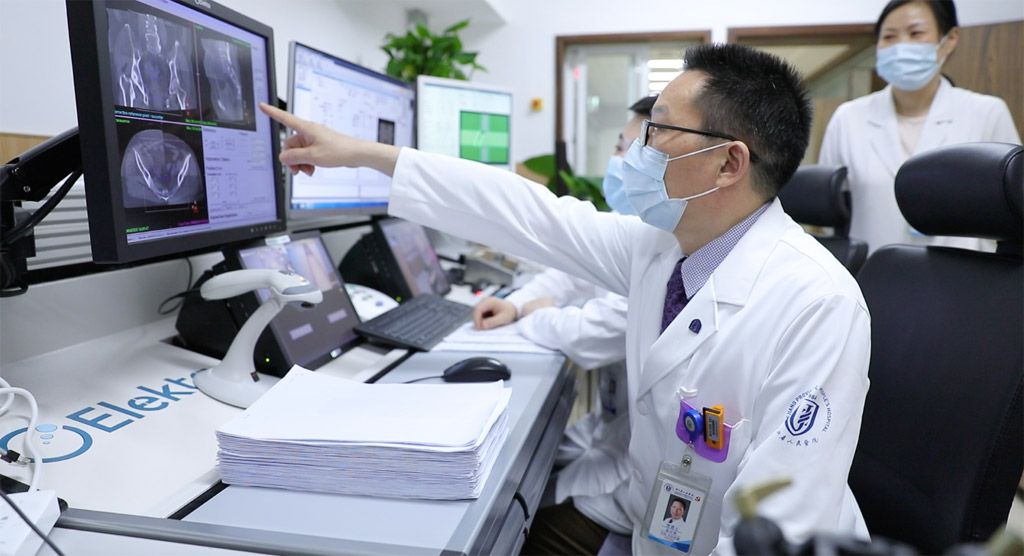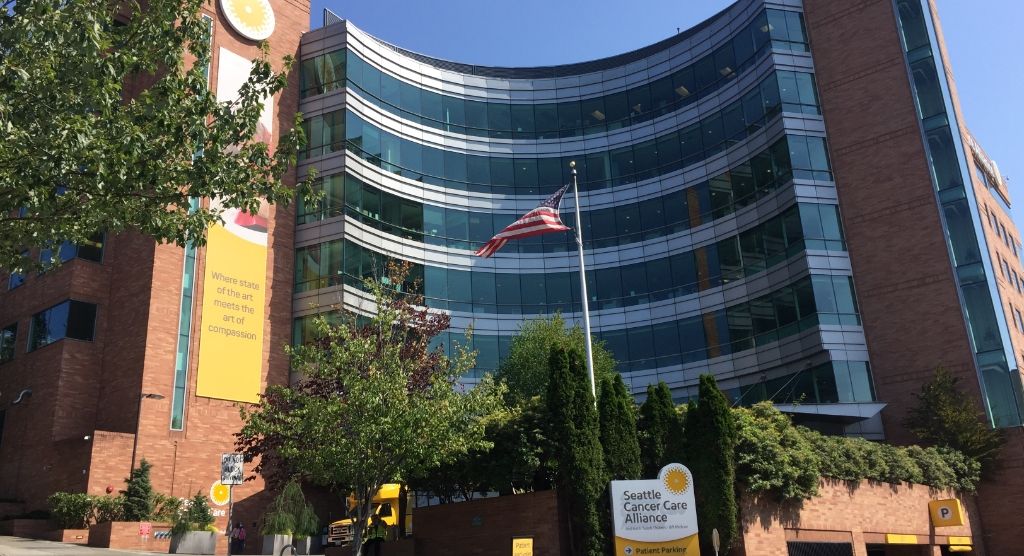Leeds Cancer Centre linac replacement program scores 10 new Elekta systems in seven years

Collaboration with managed equipment services (MES) provider yields an all-Versa HD fleet in record time
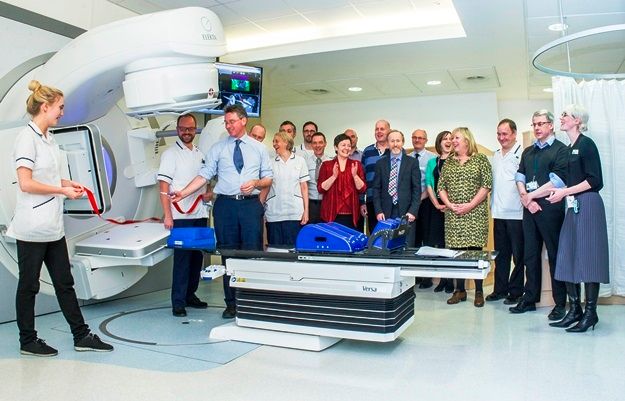
A 15-year-old partnership between St. James’s Oncology SPC Ltd., the Leeds Teaching Hospitals NHS Trust, Elekta and MES provider Medipass Healthcare has allowed St. James’s University Hospital’s Leeds Cancer Centre to completely re-equip with Versa HD™ systems. The project – which began in 2013 with the installation of two Versa HD linacs – was recently completed with the installation of the tenth Versa HD in February 2021.
“The MES contract enabled us to replace each of the Synergy linacs with Versa HD systems on a regular basis starting in 2013…”
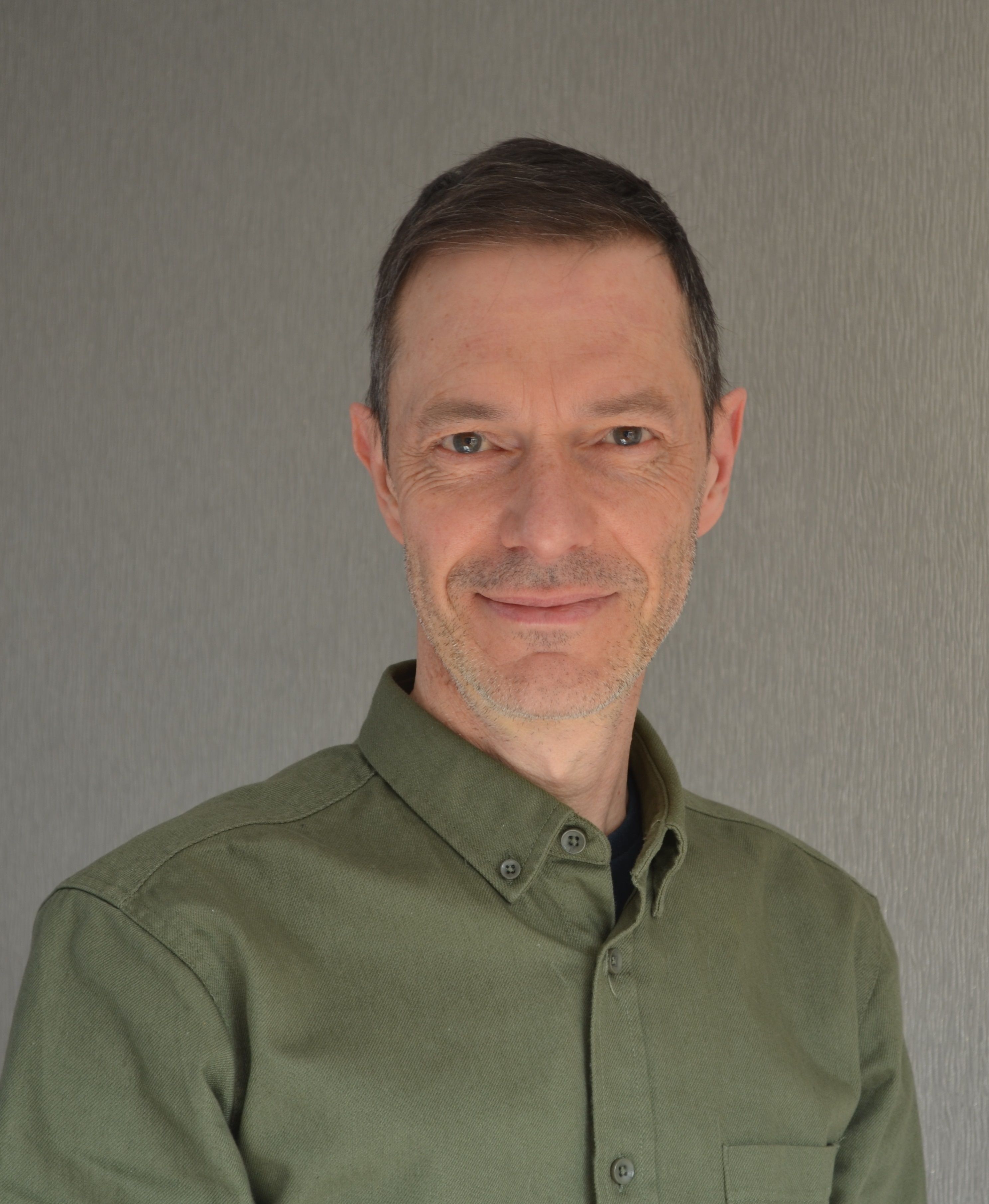
“We began working with the MES, Medipass, (See What is MES?) in 2004 when it selected Elekta to supply 10 Elekta Synergy® and Elekta Synergy® Platform linacs – paid for under a government-backed private finance initiative – that would equip the new Leeds Cancer Centre that was scheduled to open in 2008,” says Chris Forrest, Radiotherapy Equipment Manager, Leeds Teaching Hospitals NHS Trust. “The MES contract enabled us to replace each of the Synergy linacs with Versa HD systems on a regular basis starting in 2013 as each Synergy approached 10 years of age – and even younger as was the case with the first two Versa HD installations in 2013.
“Under the contract we negotiated with Medipass, we simply make a regular monthly payment for a comprehensive set of services the MES provides,” Forrest adds. “That includes replacing linacs, software updates and spare parts among other things. In effect, we’re paying for a radiotherapy service – it’s a seamless approach for providing equipment availability without the complications of running a fleet of machines.”
Medipass MES Manager Daina Dambitis explains that working with an MES offered Leeds the advantage of a guaranteed life cycle and replacement program, which allows planning and growth in terms of aspirational plans for patient care, as well as stability in the resources available. Knowing that equipment replacement and maintenance is being managed collaboratively with Leeds staff gives confidence in service delivery to those at the “sharp end” of patient service provision.
This level of predictability would have been impossible if Leeds Cancer Centre had to rely on NHS funding for capital equipment purchases and revenue stream to train its own staff to maintain the equipment.
“Working closely with our vendor partners and the Trust clinical teams, flexibility and focus are keys to a successful project.”

“Our mission at Leeds is to work hand in hand with the clinical teams to provide advanced Elekta equipment that translates into first-class patient care,” she adds. “We strive to deliver this equipment on time and to the highest spec achievable. Working closely with our vendor partners and the Trust clinical teams, flexibility and focus are keys to a successful project. The additional challenge from Covid-19 has given us a chance to step up as a working group and show what can be achieved with a common goal in all of our sights.”
Medipass responsibilities under the MES contract:
- Asset management
- Performance monitoring
- Procurement and invoice payment
- Upgrades
- Maintenance
- Long-term investment plan
- Equipment planning and rationalization
- Expert advice and safety management (equipment)
St. James’s Oncology SPC Ltd (“Project Company”) responsibilities under the MES contract:
- Outsourcing of risk
- Insurance finance
- Design and build interface
- Response desk
- Expert advice and safety management (building)
Fleet overhaul begins
Elekta introduced its advanced Versa HD system in 2013, with much of the prototyping work on the system’s Agility™ MLC and flattening filter free (FFF) technologies having been done at Leeds.
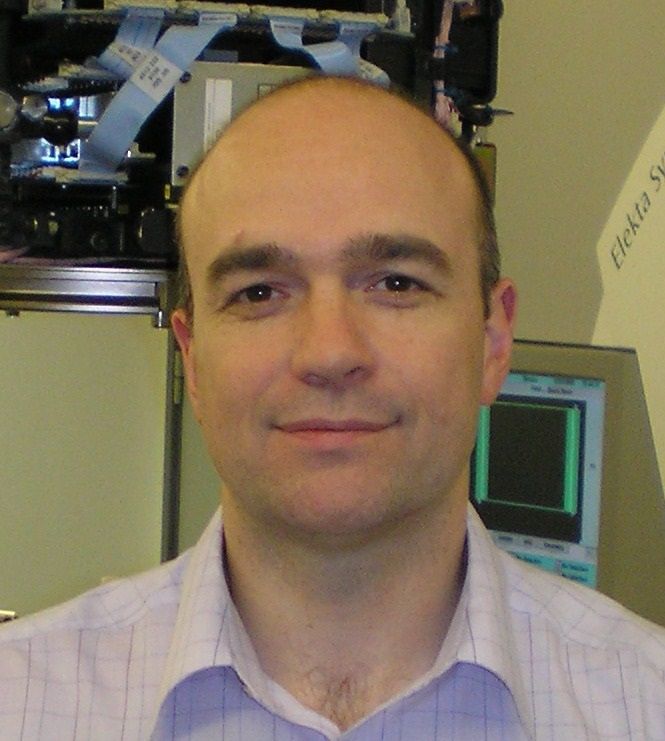
“By virtue of this technology development collaboration, Elekta offered to replace two Elekta Synergy systems with Versa HD linacs without additional cost and two years ahead of when the first two Synergy systems were due for replacement,” says Steve Weston, PhD, Leeds Cancer Centre Head of Radiotherapy Technology Physics. “It was a fantastic offer because we knew how good the technology was.
“Eighty percent of our radical treatments are delivered with VMAT and FFF makes these extraordinarily quick,” he adds. Our high-dose lung SABR treatments, for example, went from 10-12 minutes pre-VMAT to two minutes with VMAT, then with FFF we cut treatment time to 90 seconds. Plus, the Agility MLC enabled us to modulate the beams much more efficiently with the 6.5 centimeters per second leaf speeds.”
Through Medipass, installations of the world’s first two clinical Versa HD systems were completed at Leeds Cancer Centre in April and November 2013. Then – with close cooperation between Elekta, Medipass, St. James’s Oncology SPC Ltd. and the Leeds Teaching Hospitals NHS Trust – the multidisciplinary team (MDT) began to methodically swap out and decommission Synergy systems with beam-matched Versa HD linacs as the center’s Synergy machines reached their tenth operational year.
Installations:
- August-December 2016: Versa HD #3
- February-June 2017: Versa HD #4
- March-August 2017: Versa HD #5
- August 2017-January 2018: Versa HD #6
- May-August 2019: Versa HD #7
- October 2019-January 2020: Versa HD #8
- February-June 2020: Versa HD #9
- January-May 2021: Versa HD #10
“Every one of the Versa HD linacs is beam-matched with 6 MV and 10 MV photons, but not all are configured precisely the same way – some of them may have the HexaPOD evo RT patient positioning system, for example,” Dr. Weston notes. “That said, every Versa HD has a matched counterpart at the cancer center, which enables us to seamlessly transfer a patient to its match if a system is down for any reason.”
Although beam-matching the systems condenses commissioning time substantially by eliminating time-consuming beam data collection, the Leeds Cancer Centre physics team has made commissioning even more efficient through a regimented process that evolved out of necessity.
“We’re absolutely ruthless about what is required to demonstrate a linac is fit for clinical use and we agree on that well in advance.”

“We’re absolutely ruthless about what is required to demonstrate a linac is fit for clinical use and we agree on that well in advance,” Dr. Weston says. “We know what we’re trying to achieve and stick to a strict timeline. We take four days for standard beam measurement, three days for measuring QA baselines and three days for ensuring that VMAT is correct. Then, there’s another three days for audit measurements of 40 different types of plans, followed by four days of XVI commissioning. Then, the radiographers start two days of end-to-end testing of the workflows we use at Leeds. After that, we’re good to go. It’s an extremely efficient process with a minimal amount of contingency time built in. We don’t leave anything to the last minute.”
Recipe for success
Leeds’ long-term working relationship with Medipass and Elekta has fostered a great deal of trust between the organizations and a profound understanding of the Leeds Cancer Centre’s clinical goals and requirements. That, combined with a detailed, patient-centric contract with the MES, facilitated Versa HD installations and clinical go-lives that have made the cancer center a leading clinic in the United Kingdom.

“It has been critical that everyone in the project MDT understands everyone else’s challenges and responsibilities,” Forrest says. “Throughout the last 15 years – and particularly the last seven – the group has met at least once each week, regardless of the number of issues we need to address. Each representative in the MDT has been invested in the success of each installation – we all want the same thing. That really encouraged a high degree of collaboration and openness – that’s what makes it work. It’s not people working to a rigid set of constraints, but rather understanding what the goal is – and in the end, the aim is to create and maintain a service that serves patients.”
According to Medipass Healthcare CEO John Muolo, Medipass has partnered with Elekta for over 15 years to support advanced cancer treatment in the United Kingdom.
“Our mission is very simple,” he says. “We aim to ensure clinical teams are focused solely on caring for their patients, while Medipass and its partners focus on providing the technologies critical to patient treatment and an enhanced patient environment.”
“We’re trying to create something that is going to be fit for the future,” Forrest adds, “so our ambition is to basically restart the MES contract when the first one ends.”
What is MES (Managed Equipment Services)?
MES is the outsourcing to a third party specialist all aspects of medical equipment management. The key elements of an MES include: purchasing; installation; managing and maintaining a portfolio of medical equipment on a long-term basis; replacing such equipment in a planned program; and training users. MES is a non-core activity of the medical center, and is better managed by a third party specialist, thus facilitating hospital management to concentrate on its core role of providing a high standard of clinical services. MES offers a strategic approach to managing equipment to the highest standards.
Source: www.medipasshealthcare.com

